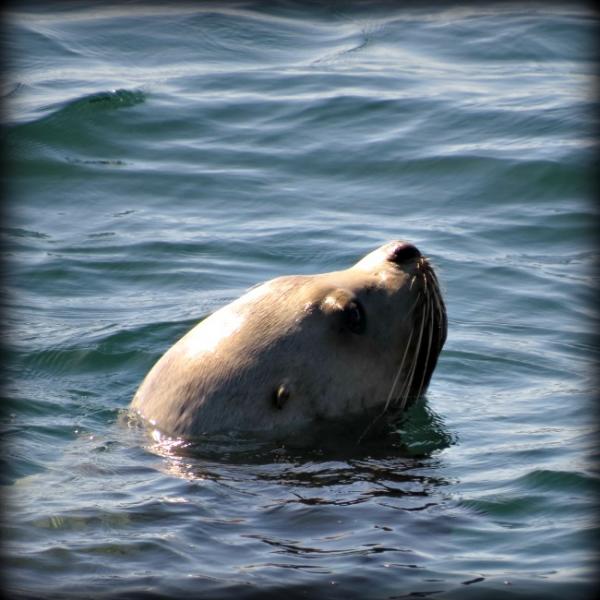The Impact of Fossil Fuel Exports on the Salish Sea
 With or without a spill, increased shipping activity can take a serious toll on marine ecosystems, wildlife and communities along the coast. When the products being shipped are fossil fuels like coal, oil and gas, the impacts are amplified because burning these fuels contributes greatly to global climate change.
With or without a spill, increased shipping activity can take a serious toll on marine ecosystems, wildlife and communities along the coast. When the products being shipped are fossil fuels like coal, oil and gas, the impacts are amplified because burning these fuels contributes greatly to global climate change.Ocean Acidification
Ocean acidification – caused by the very climate changing gases released by the eventual burning of fossil fuels that are shipped through this region – is a serious threat to the Salish Sea, and it's happening here and now. Ocean acidification is the process through which oceans and seas absorb carbon dioxide from the atmosphere. Since the beginning of the Industrial Revolution, when we started burning fossil fuels on a large scale, our oceans have become 30 per cent more acidic. This acid prevents species such as oysters, scallops, urchins and crabs from being able to build shells and skeletons, thereby reducing the ability of these species to survive. The recent mass scallop die-off near Qualicum Beach – and associated job losses in the shellfish industry – should stand as a stark warning of the future we will face if we follow the path of more fossil fuel exports and more carbon emissions. Climate change and ocean acidification will continue to have devastating consequences, not just for coastal economies, communities and families, but for anyone who depends on the ocean as a source of food.
Tankers vs. Orcas
Increasing tanker traffic will disturb the Salish Sea’s revered orca (killer) whales – not even proponents of fossil fuel export proposals can argue with this fact. The region’s resident orcas were designated as “endangered” in 2001, and that status was reaffirmed in 2008. One major threat these whales face within their critical habitat is human-generated noise pollution – something coal ships, oil and LNG tankers dramatically increase. Underwater noise makes it extremely difficult for orcas to detect prey and communicate with each other, both of which are key to their survival. Government agencies in Canada and the U.S. have identified activities like industrial shipping as serious threats to orcas. There simply isn’t room in the Salish Sea for healthy orca populations and hundreds of new tankers.
Threat to Salmon: The Lifeblood of the Coast
From start to finish, proposed fossil fuel projects pose a grave threat to the most ecologically, economically and culturally important species in the Salish Sea. Legendary runs of wild salmon have supported complex food chains and human communities in this region for millennia. These salmon spawn in rivers and streams that flow into the Salish Sea – including the Fraser River, the largest salmon river in Canada. These vital waterways could soon be crossed by more pipelines and coal trains than ever before. A single accident, either in sensitive spawning areas or marine migration corridors, would devastate the salmon runs and the ecosystems, economies and cultures that rely on them.